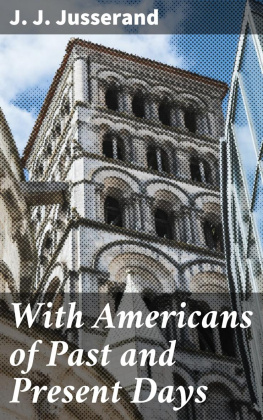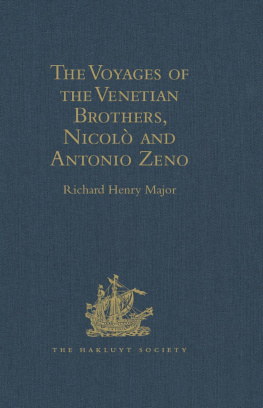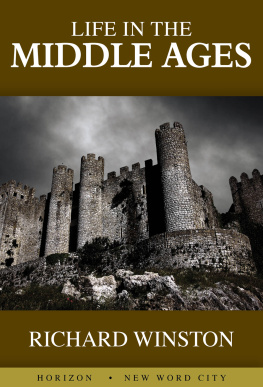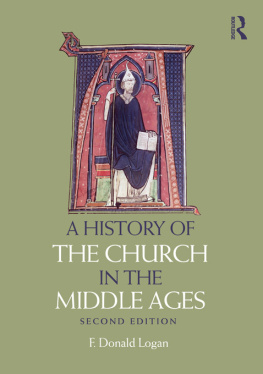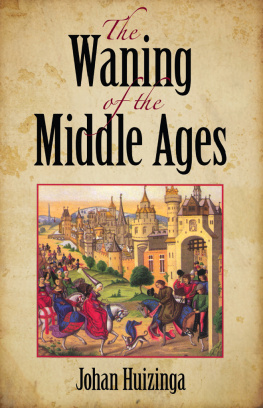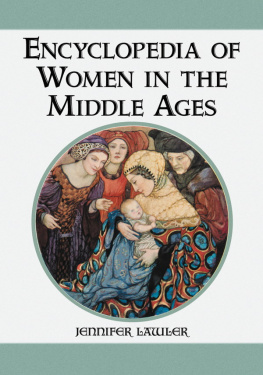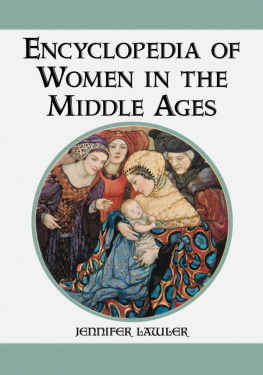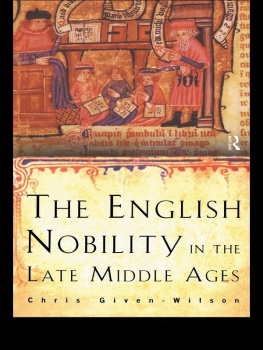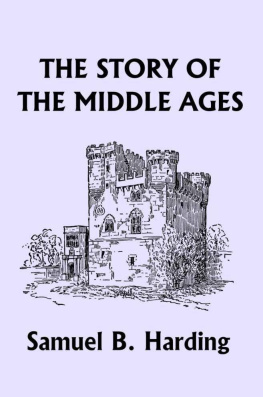We know Egypt, thanks to her tombs, and we know Rome, thanks to Pompeii, in these modern days, better than we know the Middle Ages of Europe and the life of an ordinary man during that period. We cannot hope to find in any corner of France or England a Pompeii, catacombs, or pyramids. In our countries the human torrent has never ceased flowing; rapid and tumultuous in its course, it has at no time ensured the preservation of the past by deposits of quiet ooze.
Yet, this common life of our ancestors, is it indiscernible, impossible to reconstruct? is that of kings and princes alone accessible to our view through the remoteness of ages, like those huge monuments which men see from afar when they cannot distinguish the houses in a distant city? Surely not. But to reach the heart of the nation, to get into touch with the greater number, a patient and extended inquiry is necessary. To make this usefully, one must break more or less completely with the old habit of taking the ideas of every-day life in the Middle Ages only from the descriptions, the satires, or the eulogies of poets. Literature is no doubt of valuable help in these restorations, but it is not the only, nor even the principal source of information. Poets embellish, imagine, colour, or transform; we must not accept their statements without checking them.
To check them is what we can do. We may have no such {8} burial grounds to explore as in Egypt, nor a whole town to bring to light as at Pompeii, but we have what is worth almost as much: the incomparable depositories of the Records of old England. Immense strides have been made, especially within the last hundred years, to render their contents public. Thousands of documents have been printed or analysed, and the work is still continuing; indeed, looking at the progress made of late, a feeling of wonder cannot be repressed at the premature alarm of historians like Robertson, who wrote in 1769: The universal progress of science during the two last centuries, the art of printing, and other obvious causes, have filled Europe with such a multiplicity of histories, and with such a vast collection of historical materials, that the term of human life is too short for the study or even the perusal of them. The field of research has never ceased to widen, while the boundaries of human life scarcely recede at all; but students comprehend that the best means of rendering service is to impose limits on themselves and to study by preference separate points or periods of the immense problem to the best of their power. The work of unearthing is so far advanced that it is possible usefully to sift the riches drawn from these new catacombs.
At first sight all these petitions, these year-books full of reports of lawsuits, these long rows of statutes and ordinances seem the coldest things in the world, the most devoid of life. They are not even mummies or skeletons, they look as if they were but the dust of old bones. Yet to judge of them thus were to judge in a superficial manner; no doubt it might seem pleasanter to keep to the descriptions of tale-tellers; but how many chances of error do they not present! With the year-books, and the petitions followed by inquiries, we are on distinctly more solid ground; we soon grow accustomed to their language, and, under the apparently cold dust, sparks of life appear, we can then with little effort restore scenes, understand existences, perceive the distant echo of imprecations or shouts of triumph.
It was with this thought that the present work was {9} undertaken a good many years ago. In it there is a little less mention of Chaucer and a little more of the Rolls of Parliament than is sometimes found in the works devoted to the same period; this does not arise from want of admiration for the great man, far from it, but from the need of a test and of means of control, which may perhaps be deemed legitimate, and only increase, in the end, our sentiment for him. The present writer has desired to confine himself in this work within strict limits; one only of the many sides of the common life in the fourteenth century is here studied, a side little enough known and sometimes difficult to observe, namely, the character and the quality of the chief kinds of nomadic existence then carried on in England. And even in that reduced compass he is very far from making claim to completeness; so that this work is presented to the public more as a sketch than a treatise.
In the remodelling of his text, which had appeared as a French book in 1884 and as articles in English some years earlier, the author has been assisted, he need hardly say, by his learned translator, to whom he owes much for having assumed the task of turning into English a work which she herself would have been so well qualified to write. He has been helped too by friends, all of whom he does not mean to name here. But though feeling that in this also his incompleteness will be very apparent, he cannot deprive himself of the pleasure of inscribing on this page with gratitude and affection the names of Gaston Paris, of the Institute of France; of E. Maunde Thompson, Principal Librarian of the British Museum; of F. J. Furnivall, Director of the Chaucer and many other Societies; lastly, he ought, perhaps, to have said firstly, of the poet and critic, Edmund Gosse, to whose kind initiative and suggestion he owes it that his book is published under its present form.
J.
ALBERT GATE ,
July 7th, 1889.
At the time of les longs espoirs et les vastes penses, so far back that I have but a hazy recollection of him, the young author of these pages had formed so bold a plan that he kept it to himself, which was to write, if a long life were granted him, a complete description of the English people, during it is true a single century, the fourteenth, that period, of unique interest, when, after long years of probation, it became certain that England would be English and nothing else, when the language was formed, the first masterpieces were written, the chief traits of the national character became permanent, the principal institutions were founded, and even a first attempt at Reformation was launched.
Old Barthlemy Saint Hilaire, the indefatigable translator of Aristotle, used to say to me when he was our Foreign Minister: one must select, early in life, a vast intellectual task, that will be like a literary companion, a long-lived one, which you can never lose, because it is sure to outlive you. The author of this study thought the ampler work would be his literary companion.
But his official duties thereupon became more exacting, and as they had a first claim, he had to part with his companion, whom, as will happen in lifes pilgrimage, others replaced at later stages of the journey. He desired, however, that some trace be left of an early comradeship: hence the present essay, illustrated in part from his pen-and-ink sketches, also a token of comradeship.



